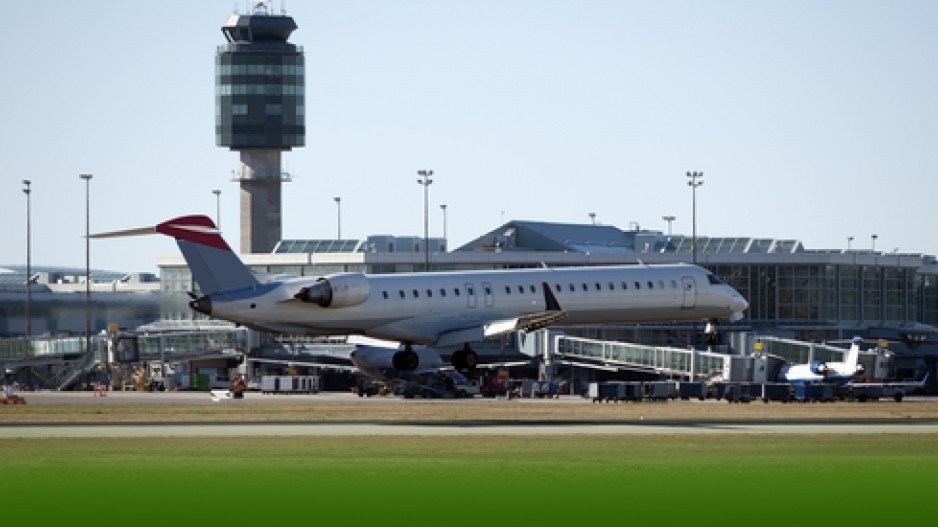When the Vancouver International Airport Authority (VIAA) hikes its airport improvement fee 33% in May, airlines that refuel planes at B.C.�s largest airport (YVR) will no longer have to pay the $0.02-per-litre provincial jet fuel tax.
VIAA CEO Larry Berg praised former premier Gordon Campbell for announcing, in September 2010, that the B.C. government would eliminate its jet fuel tax on April 1. Berg said at the time that lower flight costs would attract airlines to Vancouver.
That�s partly why activists, such as Weststar Communications owner Bill Tieleman, were surprised when Berg announced in January that air travellers to destinations outside B.C. will soon have to pay a $20 fee each time they leave YVR. That�s up from the current $15-per-trip levy.
Tieleman, who led the successful campaign to revoke B.C.�s harmonized sales tax (HST), said the VIAA�s airport improvement fee increase is an example of the �nickel and diming of the B.C. travelling public� that has prompted many to depart from either Abbotsford International or Bellingham International airports.
But Berg bristles at the suggestion that the elimination of the jet fuel tax and the increased airport improvement fee shifts flight costs from the airlines to consumers.
Victoria funnelled money that it generated from the jet fuel tax into general revenue to pay for a number of government services, none of which were airport-related.
In contrast, Berg�s airport improvement fee increase will go directly to pay for $1.8 billion in YVR capital improvements during the next 10 years. Infrastructure upgrades include:
�more than 700 metres of moving sidewalks;
�a new baggage transfer system that will help passengers connect with a flight within 60 minutes, down from the current 90 minutes;
�seismic and other upgrades to the domestic terminal building such as removing asbestos; and
�lengthened runways.
Berg added that the airport improvement fee hike will generate an extra $30 million annually, not the $85 million that some media have reported.
Airport improvement fees will generate $120 million annually and cover 50% of the upgrade costs.
The remainder of the financing will come from:
�airline landing fees;
�airline terminal fees; and
�lease payments and other commercial revenue from retail tenants.
No specific hikes are set for either terminal or landing fees or for commercial leases.
Instead, the VIAA anticipates that aeronautical revenue will increase as more planes land at YVR and commercial revenue will rise as more people pay for parking.
Debt will cover the remainder of the $1.8 billion in capital improvements.
Most capital spending at YVR is driven by Berg�s desire to make the airport North America�s gateway to Asia.
Increasing the percentage of travellers who use the airport to connect to other destinations is therefore key to his business plan.
Berg wants YVR to be more like Amsterdam International Airport, where 70% of passengers connect to other flights. Currently 30% of travellers use YVR to connect to final destinations.
Berg said achieving gateway status would attract airlines that would otherwise not stop in Vancouver.
But Tieleman, who has started a Facebook protest page opposing the airport improvement fee hike, said the increased fee charged to people travelling from YVR is an impediment for local travellers and business people.
�People like me get fed up with the airport improvement fee that was supposed to be temporary but has never ended. That�s why Seattle has almost double the passenger volume of YVR and why Bellingham is booming and doing a huge expansion.��




